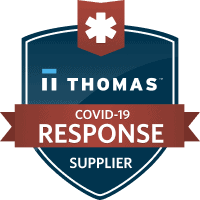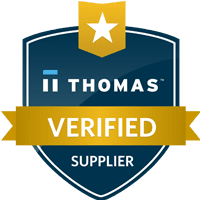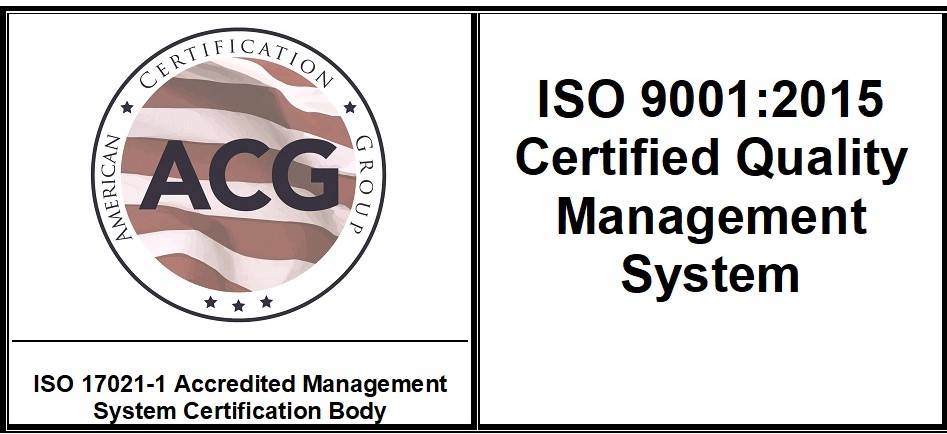Rotational molding, also called rotomolding or rotocasting, is a thermoplastic process for creating low-stress, hollow plastic components. The technique involves adding plastic powder resin to a hollow mold, which then spins in an oven on a bi-axis machine until the powder has melted. At this point, the resin has coated the inner wall of the mold, and the part can be removed after cooling.
This versatile procedure can be used to create parts of varying size, shape, and complexity. It is especially useful for low to medium-run quantities, but it is economically viable for projects of many scales.
The basic process of rotomolding consists of four steps: charging, heating, cooling, and demolding.
1. First, the mold is charged, meaning that a set quantity of powder is added.
2. Next, an oven heats the mold to a high enough temperature that the powder liquefies and evenly coats the interior of the mold. During this process, a machine rocks the entire form about two axes, which helps regulate the distribution of the liquid.
3. The mold is then cooled to allow the liquid to re-solidify. The rotation continues during this step to maintain the desired shape.
4. Demolding is possible once the machinery is stopped and the product has cooled sufficiently.
Here are a few reasons to choose rotational modeling over injection molding or other alternatives:
• Cost-Effective: The molds used in rotational molding are relatively inexpensive to produce, which decreases the overall cost of the process. There is also little waste as the entire quantity of powder is typically consumed in molding.
• Feasible for Short Production Runs: Many molding processes are cost-prohibitive at smaller quantities. However, because of the low tooling costs, rotomolding is economically viable even for very short runs.
• High-Quality: The end products are extremely low-stress and require little further finishing to achieve a high-quality result.
• Versatile: Rotomolding lacks many restrictions inherent to other production methods. It can be used for parts of almost any size, and although certain geometries are more challenging than others, it’s possible to successfully engineer molds for almost any shape. The process also works with diverse materials, enabling different characteristics in the cooled product.
At Advanced Prototype Molding, we have extensive experience controlling necessary considerations to create high-quality rotocast components. We carefully consider the angles and shapes of the mold along with the desired wall and corner thicknesses. We also take into account variations due to material type that affects production variables. In doing so, we design the optimal mold and procedure for each individual product.
By far, the most common material for rotomolding is polyethylene, making up 85-90% of rotomolded products. However, rotational molding can accommodate a variety of other materials to suit different project specifications. These include, among others:
• PVC Plastisols
• Polycarbonate
• Nylon
• Polypropylene
• Polyesters
• Polyacetal
• Polystyrenes
• Acrylics
• Silicones
• Epoxies
• Fluorocarbons
The rotational molding process can create virtually any hollow shape, regardless of size or complexity. Though less common, it also effectively produces non-hollow products. This versatility makes the process desirable for manufacturing across industries. Some common applications include the following:
• Automotive and Aerospace: ducting, fuel tanks, wheel arches, instrument panels
• Materials Handling: shipping containers, barrels, bins, trash cans
• Consumer Goods: balls, toys, furniture
• Medical: carts, ball syringes, cases, tubs, dental chairs
• Marine: floats, pool liners, kayaks, docking floats, and fenders
Rotational molding is the ideal process for any project requiring high-quality, hollow plastic components. Advanced Prototype Molding offers premier rotomolding services in the Illinois area, working closely with you to determine the exact materials and procedures necessary to craft your components. Whatever your production scale or desired product, we’ll get you exactly what you need out of the prototyping or production process. Get in touch with us today to request your quote.



ADVANCED PROTOTYPE MOLDING
1520 N Old Rand Road Wauconda, IL 60084
Tel: 847-202-4200
Fax: 847-202-4270
sales@advancedprototype.com

ADVANCED PROTOTYPE MOLDING
1520 N Old Rand Road Wauconda, IL 60084
Tel: 847-202-4200
Fax: 847-202-4270
sales@advancedprototype.com